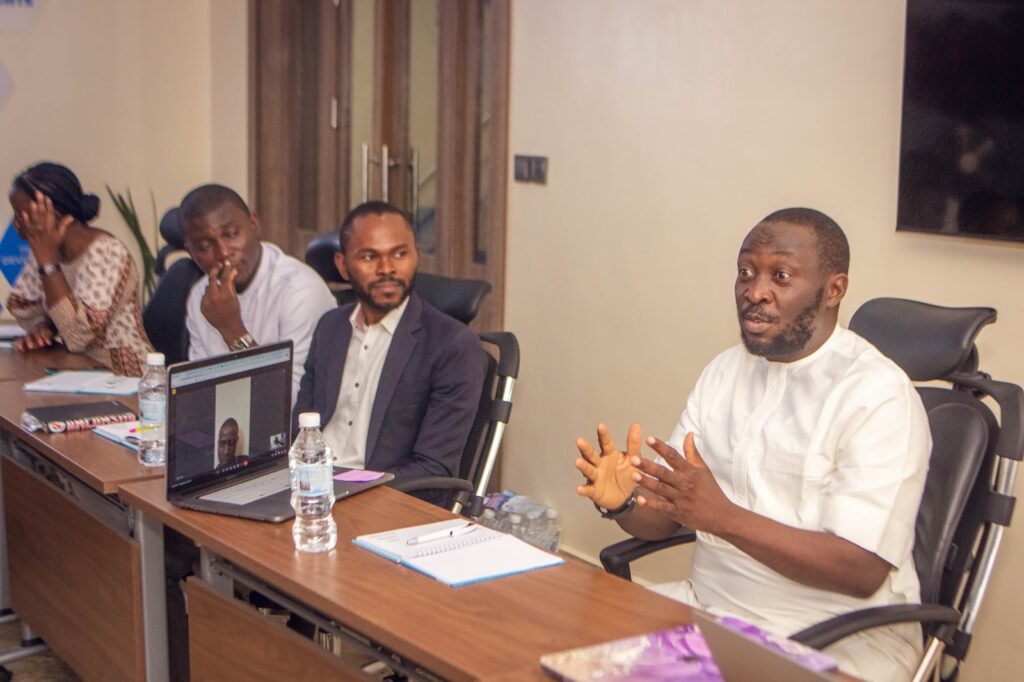HumAngle continues to interrogate the fluid dynamics of the conflict landscape across Africa, particularly in the Lake Chad and Sahel regions. Our coverage has focused on underreported issues and voices that are often sidelined.
As 2024 draws to a close, it is important to contemplate the difficulties and stark truths encountered in Africa’s conflict-affected regions over the past year. For example, the forced displacements of millions of people, driven by man-made and natural disasters, have intensified food insecurity and poverty. The triple effects of bad governance, terrorism, and climate change in the Sahel region have also created significant strain on thousands of at-risk communities.
Interestingly, however, the previously subdued voices of communities in underreported areas are now shaping local elections, influencing policy choices, and affecting both national and international initiatives. This is partly thanks to our efforts—our courageous, accurate, and empathy-driven reporting, encompassing 470 impactful articles, eight episodes of the HumAngle Index, nine insightful episodes of Vestiges of Violence, three in-depth documentaries, three episodes of the investigative podcast Into the Depths, along with numerous other video explainers and visual presentations.
We achieved all these milestones in 2024 despite the hurdles presented by a deteriorating revenue landscape for independent newsrooms like ours.
Key features of 2024
HumAngle has made considerable strides in uncovering the conflict indicators that fuel violent agitations for a Biafran state in southeast Nigeria while tackling the array of organised disinformation campaigns exploiting online platforms.
“Maiduguri Floods: The Unfortunate Series of Events That Led to the Breakdown of Alau Dam” and “The Young Nigerians Caught in the Gold Rush Financing Terrorism in the Sahel” stood out as some of our most widely read pieces of 2024. We have done in-depth coverage of human trafficking, accountability gaps in conflict regions, and human rights abuses. We also provided early warning about public health, underscoring the expected rise in Mpox cases throughout Africa and stressing the significance of preventive measures and vaccination initiatives.
The heartbreaking case of 17-year-old Falmata’s femicide in Bama, northern Nigeria, ignited a national conversation about honour killings. Less than a month after we published our investigation into fundraising activities fuelling separatist violence in southeastern Nigeria, the authorities in Finland arrested the movement’s arrowhead (Simon Ekpa) for terrorism financing. We’ve recorded other impacts, too—wrongfully detained people regaining freedom, trafficked people receiving help to return home, renewed commitment from government agencies, the removal of bad actors on social media platforms, and so on.
Abdulwaheed Sofiullahi, who wrote for HumAngle, gained global recognition for his work, including winning international reporting grants and the prestigious 2024 AAAS Kavli Science Journalism Award. Our journalists won other international journalism awards, including the SIGMA award for data journalism and the CJID Excellence in Journalism award (fact-checking category). We were equally longlisted for the Livingston Awards and the One World Media Awards. Beyond this, HumAngle reporters were invited to showcase their stories at international conferences such as the iMEdD International Journalism Forum in Athens, the African Investigative Journalism Conference in Johannesburg, and the Africa Facts Summit in Accra.
Our deployment of technology
HumAngle harnessed four innovative technologies—Artificial Intelligence (AI), Geographic Information Systems (GIS), Virtual Reality (VR), and animation—to profoundly elevate our game in 2024. Here’s a glimpse into the unfolding of one of these technologies:
Our immersive storytelling approach allows our audience to engage with narratives from conflict zones, cultivating a sense of empathy and a richer understanding of the experiences shared. In 2025, we will delve into virtual environments to train journalists and social impact professionals with the skills needed for crisis response scenarios.
Through integrating these technologies, HumAngle has enhanced its capacity to capture and convey overlooked issues, elevate humanitarian responses, and cultivate a more profound bond between audiences and those affected the most by these conflicts.
Projections for 2025
Our goal is to expand the range and intensity of our investigative efforts focused on revealing wrongdoing in the realms of political, security, and humanitarian governance. Our attention will steadfastly centre on the impacts of bad governance and instability on the daily lives of people in the region.
Your continued support—as readers, donors, or partners—has played a crucial role in meeting most of our objectives in 2024. Next year, our goal is to deepen understanding, inspire initiative, drive change, and improve the welfare of our team members. Our goal is also to strengthen research, advocacy, and psychosocial support for affected communities through the HumAngle Foundation while prioritising skills development among journalists and activists, especially in rural areas.
Through collaboration, we can create a space where narratives inspire significant change and uplift everyone impacted by the most severe difficulties of our time.
HumAngle, under the leadership of CEO Ahmad Salkida, is focusing on the conflict landscape in Africa, especially in the Lake Chad and Sahel regions, addressing underreported issues and the voices of affected communities.
Despite challenges in revenue, the organization has produced 470 impactful articles and various multimedia content to highlight issues such as forced displacement, terrorism, and climate change. Their reporting has influenced local elections, policy decisions, and international initiatives, as seen in cases related to honour killings, terrorism financing, and public health warnings in the region.
In 2024, HumAngle utilized technologies like AI and VR to enhance reporting and audience engagement with immersive storytelling from conflict zones.
Their investigative efforts also targeted issues like disinformation campaigns and economic activities financing terrorism. Numerous international awards recognized their journalistic excellence. Looking to 2025,
HumAngle aims to expand its investigative journalism, focusing on governance issues and crisis response, with an emphasis on research, advocacy, and support for affected communities, alongside skills development for journalists and activists.
